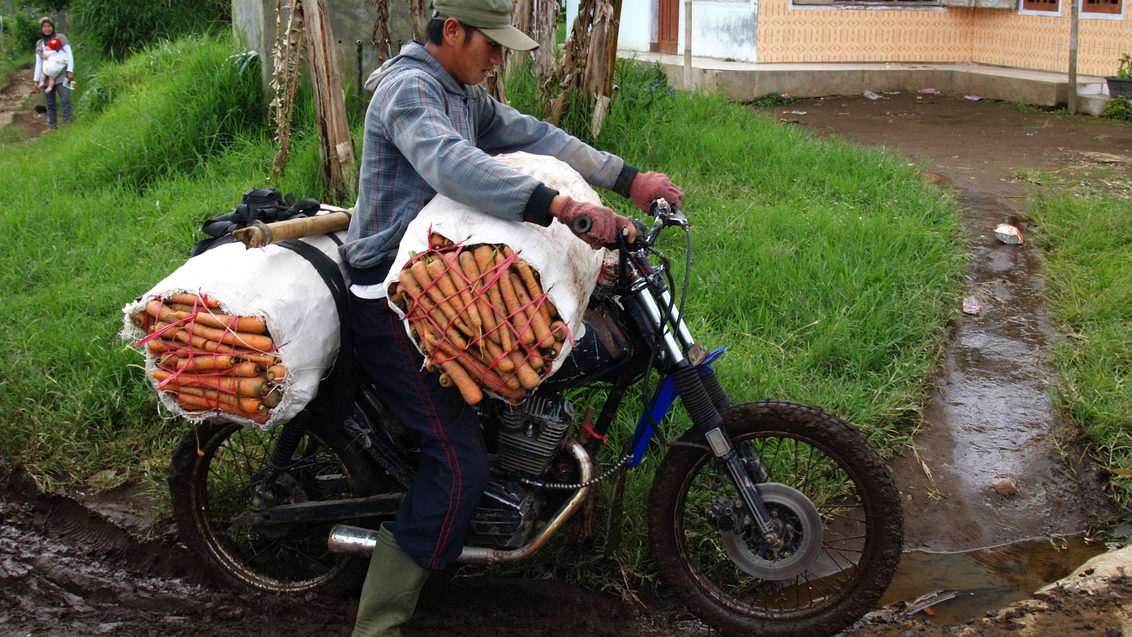Between a whisper and a motorbike

Our Farmers’ Hubs are well-established in Asia, and now growing in Africa. But what are the personal stories behind this summary? What do the Hubs really mean for farmers, and how could we do better? To find out, we’re listening.
There is much debate on how organizations can best understand the difference they make. Impact assessment can get very complicated and expensive. Non-profits such as foundations naturally want low ‘costs per insight’. One route to such findings is called the lean data approach.
We have contracted the impact measurement company 60 Decibels to use this approach in Bangladesh and Indonesia. “The aim is to examine the impact on smallholders of our Farmers’ Hubs”, says Yuan Zhou, Head of Agricultural Policy. Run by rural entrepreneurs, these Hubs provide a range of services to neighboring farmers.
“The company’s name, 60 Decibels, refers to the noise level of normal conversation”, explains Yuan. “That reflects the fact that this survey is individual and by phone. We’re looking to collect data from up to 250 farmers per country.”
The smallholders selected for a personal call will all have worked with a local Hub recently, and for at least a year. 60 Decibels has begun the survey in Bangladesh, intending to finish by October. Results from Indonesia should follow by April 2021. “The concluding report will be 20 pages long, and, we hope, full of useful insights”, comments Yuan.
Survey questions focus on the presumed benefits of working with a Farmers’ Hub. Smallholders can talk freely about the effect on their harvests and income. The interviewers also ask about changes in quality of life, service satisfaction, and the Hubs’ contribution to coping with weather shocks.
60 Decibels has staff in Nairobi, Mumbai, the USA, and the UK. Importantly for this kind of work, it also runs a network of more than 300 locally trained researchers. Lean data should ideally be capitalized. As the company declares: “There is a human voice behind every data point”. Hearing that voice properly, and encouraging it to speak up, is only possible in local languages and with the necessary cultural knowledge. Taking that approach enables 60 Decibels to claim that “We make it easy to listen to the people who matter most”.
Which would be difficult at either 30 dB (a whisper) or 95 dB, the noise-level of a motorbike engine.
